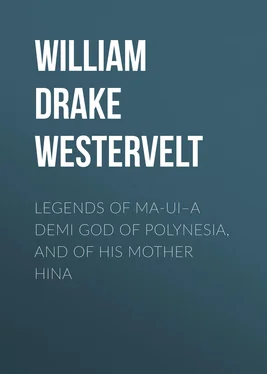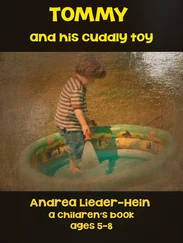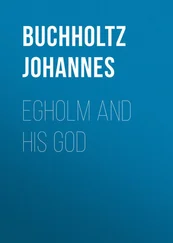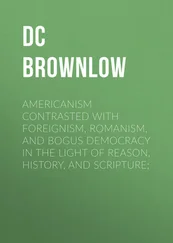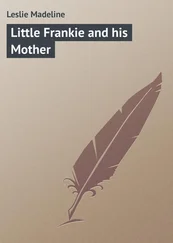William Drake Westervelt - Legends of Ma-ui–a demi god of Polynesia, and of his mother Hina
Здесь есть возможность читать онлайн «William Drake Westervelt - Legends of Ma-ui–a demi god of Polynesia, and of his mother Hina» — ознакомительный отрывок электронной книги совершенно бесплатно, а после прочтения отрывка купить полную версию. В некоторых случаях можно слушать аудио, скачать через торрент в формате fb2 и присутствует краткое содержание. Жанр: foreign_antique, Старинная литература, Мифы. Легенды. Эпос, на английском языке. Описание произведения, (предисловие) а так же отзывы посетителей доступны на портале библиотеки ЛибКат.
- Название:Legends of Ma-ui–a demi god of Polynesia, and of his mother Hina
- Автор:
- Жанр:
- Год:неизвестен
- ISBN:нет данных
- Рейтинг книги:3 / 5. Голосов: 1
-
Избранное:Добавить в избранное
- Отзывы:
-
Ваша оценка:
- 60
- 1
- 2
- 3
- 4
- 5
Legends of Ma-ui–a demi god of Polynesia, and of his mother Hina: краткое содержание, описание и аннотация
Предлагаем к чтению аннотацию, описание, краткое содержание или предисловие (зависит от того, что написал сам автор книги «Legends of Ma-ui–a demi god of Polynesia, and of his mother Hina»). Если вы не нашли необходимую информацию о книге — напишите в комментариях, мы постараемся отыскать её.
Legends of Ma-ui–a demi god of Polynesia, and of his mother Hina — читать онлайн ознакомительный отрывок
Ниже представлен текст книги, разбитый по страницам. Система сохранения места последней прочитанной страницы, позволяет с удобством читать онлайн бесплатно книгу «Legends of Ma-ui–a demi god of Polynesia, and of his mother Hina», без необходимости каждый раз заново искать на чём Вы остановились. Поставьте закладку, и сможете в любой момент перейти на страницу, на которой закончили чтение.
Интервал:
Закладка:
"Oh, dear; oh, dear! She saw the sun high in the heavens; so she hurried away, crying at the thought of having been so badly treated by her own children."
Maui watched her as she pulled up a tuft of grass and disappeared in the earth, pulling the grass back to its place.
Thus Maui found the path to the under-world. Soon he transformed himself into a pigeon and flew down, through the cave, until he saw a party of people under a sacred tree, like those growing in the ancient first Hawaii. He flew to the tree and threw down berries upon the people. They threw back stones. At last he permitted a stone from his father to strike him, and he fell to the ground. "They ran to catch him, but lo! the pigeon had turned into a man."
Then his father "took him to the water to be baptized" (possibly a modern addition to the legend). Prayers were offered and ceremonies passed through. But the prayers were incomplete and Maui's father knew that the gods would be angry and cause Maui's death, and all because in the hurried baptism a part of the prayers had been left unsaid. Then Maui returned to the upper world and lived again with his brothers.
Maui commenced his mischievous life early, for Hervey Islanders say that one day the children were playing a game dearly loved by Polynesians—hide-and-seek. Here a sister enters into the game and hides little Maui under a pile of dry sticks. His brothers could not find him, and the sister told them where to look. The sticks were carefully handled, but the child could not be found. He had shrunk himself so small that he was like an insect under some sticks and leaves. Thus early he began to use enchantments.
Maui's home, at the best, was only a sorry affair. Gods and demigods lived in caves and small grass houses. The thatch rapidly rotted and required continual renewal. In a very short time the heavy rains beat through the decaying roof. The home was without windows or doors, save as low openings in the ends or sides allowed entrance to those willing to crawl through. Off on one side would be the rude shelter, in the shadow of which Hina pounded the bark of certain trees into wood pulp and then into strips of thin, soft wood-paper, which bore the name of "Tapa cloth." This cloth Hina prepared for the clothing of Maui and his brothers. Tapa cloth was often treated to a coat of cocoa-nut, or candle-nut oil, making it somewhat waterproof and also more durable.
Here Maui lived on edible roots and fruits and raw fish, knowing little about cooked food, for the art of fire making was not yet known. In later years Maui was supposed to live on the eastern end of the island Maui, and also in another home on the large island Hawaii, on which he discovered how to make fire by rubbing dry sticks together. Maui was the Polynesian Mercury. As a little fellow he was endowed with peculiar powers, permitting him to become invisible or to change his human form into that of an animal. He was ready to take anything from any one by craft or force. Nevertheless, like the thefts of Mercury, his pranks usually benefited mankind.
It is a little curious that around the different homes of Maui, there is so little record of temples and priests and altars. He lived too far back for priestly customs. His story is the rude, mythical survival of the days when of church and civil government there was none and worship of the gods was practically unknown, but every man was a law unto himself, and also to the other man, and quick retaliation followed any injury received.
II
MAUI THE FISHERMAN
"Oh the great fish hook of Maui!
Manai-i-ka-lani 'Made fast to the heavens'—its name;
An earth-twisted cord ties the hook.
Engulfed from the lofty Kauiki.
Its bait the red billed Alae,
The bird made sacred to Hina.
It sinks far down to Hawaii,
Struggling and painfully dying.
Caught is the land under the water,
Floated up, up to the surface,
But Hina hid a wing of the bird
And broke the land under the water.
Below, was the bait snatched away
And eaten at once by the fishes,
The Ulua of the deep muddy places."
One of Maui's homes was near Kauiki, a place well known throughout the Hawaiian Islands because of its strategic importance. For many years it was the site of a fort around which fierce battles were fought by the natives of the island Maui, repelling the invasions of their neighbors from Hawaii.
Haleakala (the House of the Sun), the mountain from which Maui the demi-god snared the sun, looks down ten thousand feet upon the Kauiki headland. Across the channel from Haleakala rises Mauna Kea, "The White Mountain"—the snow-capped—which almost all the year round rears its white head in majesty among the clouds.
In the snowy breakers of the surf which washes the beach below these mountains, are broken coral reefs—the fishing grounds of the Hawaiians. Here near Kauiki, according to some Hawaiian legends, Maui's mother Hina had her grass house and made and dried her kapa cloth. Even to the present day it is one of the few places in the islands where the kapa is still pounded into sheets from the bark of the hibiscus and kindred trees.
Here is a small bay partially reef-protected, over which year after year the moist clouds float and by day and by night crown the waters with rainbows—the legendary sign of the home of the deified ones. Here when the tide is out the natives wade and swim, as they have done for centuries, from coral block to coral block, shunning the deep resting places of their dread enemy, the shark, sometimes esteemed divine. Out on the edge of the outermost reef they seek the shellfish which cling to the coral, or spear the large fish which have been left in the beautiful little lakes of the reef. Coral land is a region of the sea coast abounding in miniature lakes and rugged valleys and steep mountains. Clear waters with every motion of the tide surge in and out through sheltered caves and submarine tunnels, according to an ancient Hawaiian song—
"Never quiet, never failing, never sleeping,
Never very noisy is the sea of the sacred caves."
Sea mosses of many hues are the forests which drape the hillsides of coral land and reflect the colored rays of light which pierce the ceaselessly moving waves. Down in the beautiful little lakes, under overhanging coral cliffs, darting in and out through the fringes of seaweed, the purple mullet and royal red fish flash before the eyes of the fisherman. Sometimes the many-tinted glorious fish of paradise reveal their beauties, and then again a school of black and gold citizens of the reef follow the tidal waves around projecting crags and through the hidden tunnels from lake to lake, while above the fisherman follows spearing or snaring as best he can. Maui's brothers were better fishermen than he. They sought the deep sea beyond the reef and the larger fish. They made hooks of bone or of mother of pearl, with a straight, slender, sharp-pointed piece leaning backward at a sharp angle. This was usually a consecrated bit of bone or mother of pearl, and was supposed to have peculiar power to hold fast any fish which had taken the bait.
These bones were usually taken from the body of some one who while living had been noted for great power or high rank. This sharp piece was tightly tied to the larger bone or shell, which formed the shank of the hook. The sacred barb of Maui's hook was a part of the magic bone he had secured from his ancestors in the under-world—the bone with which he struck the sun while lassooing him and compelling him to move more slowly through the heavens.
"Earth-twisted"—fibres of vines—twisted while growing, was the cord used by Maui in tying the parts of his magic hook together.
Long and strong were the fish lines made from the olona fibre, holding the great fish caught from the depths of the ocean. The fibres of the olona vine were among the longest and strongest threads found in the Hawaiian Islands.
Читать дальшеИнтервал:
Закладка:
Похожие книги на «Legends of Ma-ui–a demi god of Polynesia, and of his mother Hina»
Представляем Вашему вниманию похожие книги на «Legends of Ma-ui–a demi god of Polynesia, and of his mother Hina» списком для выбора. Мы отобрали схожую по названию и смыслу литературу в надежде предоставить читателям больше вариантов отыскать новые, интересные, ещё непрочитанные произведения.
Обсуждение, отзывы о книге «Legends of Ma-ui–a demi god of Polynesia, and of his mother Hina» и просто собственные мнения читателей. Оставьте ваши комментарии, напишите, что Вы думаете о произведении, его смысле или главных героях. Укажите что конкретно понравилось, а что нет, и почему Вы так считаете.
